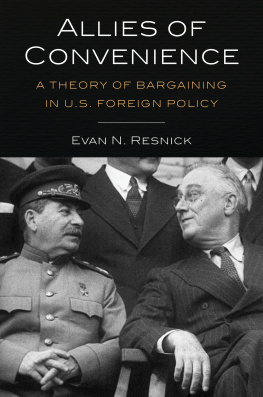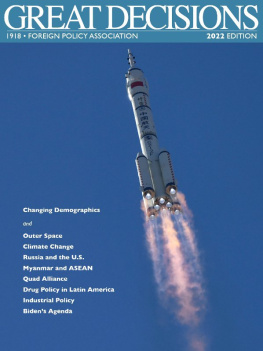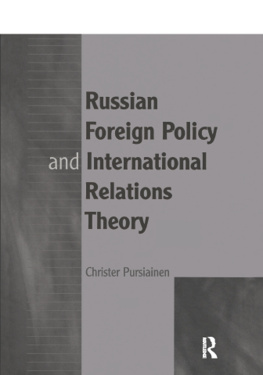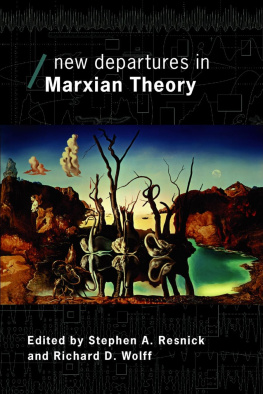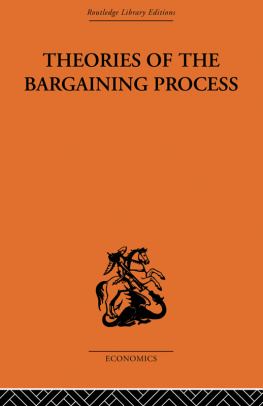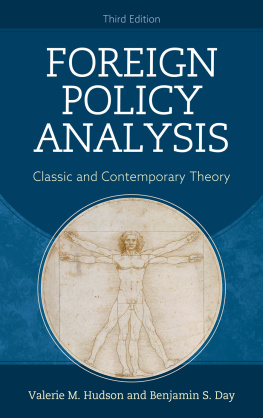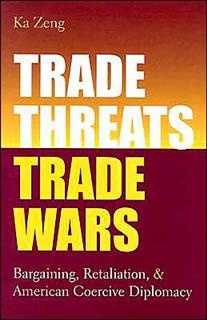Columbia University Press
Publishers Since 1893
New York Chichester, West Sussex
cup.columbia.edu
Copyright 2019 Columbia University Press
All rights reserved
E-ISBN 978-0-231-54902-8
Library of Congress Cataloging-in-Publication Data
Names: Resnick, Evan N., author.
Title: Allies of convenience : a theory of bargaining in U.S. foreign policy / Evan N. Resnick.
Description: New York : Columbia University Press, [2019] | Includes bibliographical references and index.
Identifiers: LCCN 2018050405| ISBN 9780231190589 (cloth : alk. paper) | ISBN 9780231190596 (pbk. : alk. paper)
Subjects: LCSH: United StatesForeign relations19451989. | United StatesForeign relationsChina. | ChinaForeign relationsUnited States. | United StatesForeign relationsPakistan. | PakistanForeign relationsUnited States. | United StatesForeign relationsIraq. | IraqForeign relationsUnited States. | United StatesForeign relationsGreat Britain. | Great BritainForeign relationsUnited States.
Classification: LCC E840 .R42 2019 | DDC 327.73009/04dc23
LC record available at https://lccn.loc.gov/2018050405
A Columbia University Press E-book.
CUP would be pleased to hear about your reading experience with this e-book at cup-ebook@columbia.edu.
Cover design: Elliott S. Cairns
Cover image: Bettmann/Getty Images
U ntil quite recently, I was certain that this long-gestating book would never see the light of day. That you are now holding it is a testament to the combined efforts of many people, who provided me with the guidance, support, friendship, and love that I needed to stagger my way to the finish line.
To begin with, Deans Barry Desker and Joseph Liow, Ambassador Ong Keng Yong, and Professors Ralf Emmers and Tan See Seng at the S. Rajaratnam School of International Studies offered me one of the best academic jobs on the planet and then exhibited considerable patience as I painstakingly brought this project to fruition. RSIS is an extraordinarily collegial place to work and I have made many friendships in my six years there. Among the people who are most accustomed to hearing my knock on their office door are Ralf Emmers, Bhubhindar Singh, Anit Mukherjee, Sinderpal Singh, Ahmed Hashim, Bernard Loo, Farish Noor, Alan Chong, and the one and only Ong Weichong. I started work at RSIS on the same day as Pascal Vennesson, who has since become a close friend and limitless source of advice, wisdom, moral support, and humor. Pascal uncomplainingly read and offered astute critiques of multiple versions of my book proposal and the manuscripts introductory chapter. I have also been extremely fortunate to meet Ted Hopf and Yuen Foong Khong, both based at our crosstown rival, the National University of Singapore. Their comradeship and guidance have meant a great deal to me.
This book evolved out of a doctoral dissertation written at Columbia University under the supervision of three living legends in the field of International Relations: Bob Jervis, David Baldwin, and Jack Snyder. The first of these, the chair of my dissertation committee, has furnished me with so much help of so many different types since my grad student days that it is impossible to imagine I might have made it this far without him. Although Richard Betts and the late Kenneth Waltz were not on my dissertation committee, I was extremely fortunate to have them both as teachers and their influence has suffused everything I have written and taught about international politics and American foreign policy. Tim Crawford was my first TA in grad school, and since that time has adroitly juggled multiple roles as my mentor, role model, and good friend. Whenever I have been wracked with doubts about my ability to succeed in this career path, all it has taken is a brief conversation with Tim, whose confidence in me and enthusiasm for the field of IR is infectious, to dissipate them.
My academic debts extend to a small number of other scholars who have also had an outsized influence on this project. I met Steve Lobell, Jeff Taliaferro, and Norrin Ripsman well after I had become a devotee of their scholarship and have relished every minute that I have had the chance to spend with them since. One of the many perks of working at RSIS has been the opportunity to meet visiting IR luminaries from around the world, none of them as generous, helpful, and entertaining as T. V. Paul. T. V. insightfully guided me through the daunting process of academic book publishing and saved me from sending out a disastrous early draft of my proposal to prospective editors.
I undertook crucial research for this book during summer stints as a visiting scholar at both the George Washington University and Columbia University. Charlie Glaser graciously allowed me to spend a few extremely productive weeks during the summer of 2013 at the Institute for Security and Conflict Studies at GWs Elliott School of International Affairs. Dick Betts and the marvelous Ingrid Gerstmann similarly hosted me for multiple research visits in 2014, 2015, and 2017 to my old stomping ground, the Saltzman Institute of War and Peace Studies at Columbia.
Stephen Wesley, my editor at Columbia University Press, has stewarded the process of publishing my first book with remarkable efficiency, skill, and finesse. All of his editorial interventions have significantly improved the manuscript, down to and including its title. Three anonymous reviewers scrutinized the manuscript twice, in part and in full, offering a flood of useful critiques and comments that also greatly improved the final product. I am also grateful for Katherine Harpers skilled and meticulous copyediting. I would be remiss if I didnt note that I am delighted that this book carries the imprint of the university that changed my life and that I adore so much.
Finally, some of the people who have been most integral to this books completion are not card-carrying International Relations scholars and have not read a word of the manuscript. This special category includes Asher Kahn, Sally David, P. Thiagarajan (Dr. Raj), Maria Thomas, Michelle Angela Gowans, Chris Robinson, Steve Fromhart, and Karl Kahandaliyanage. It also includes my loving parents Bob and Daria and my sister Allison and brother-in-law Charles. My satisfaction at having completed another career milestone is yet again counterbalanced by my sadness at having done it while living so far away from my family.
Most importantly, this book is dedicated to my wife Barbara and daughters Lorelei and Eileen, whom I love so much. Barb and I have experienced a series of adventures together since we first met at Caf Taci on 110th Street and Broadway in the fall of 1997, and our incredible relationship has literally spanned the globe. During that time, we have helped each other succeed beyond our wildest dreams and endure through our most difficult moments. We have also managed to raise two spectacular children who fill us with pride and have made every single day a joy to live.
* * *
Portions of the introduction, , and the conclusion appeared in Evan N. Resnick, Strange Bedfellows: U.S. Bargaining Behavior with Allies of Convenience, International Security 35, no. 3 (Winter 2010/2011): 14484, 2010 President and Fellows of Harvard College and the Massachusetts Institute of Technology, reprinted courtesy of the MIT Press. I thank the journals editors for granting me permission to use the material here.



